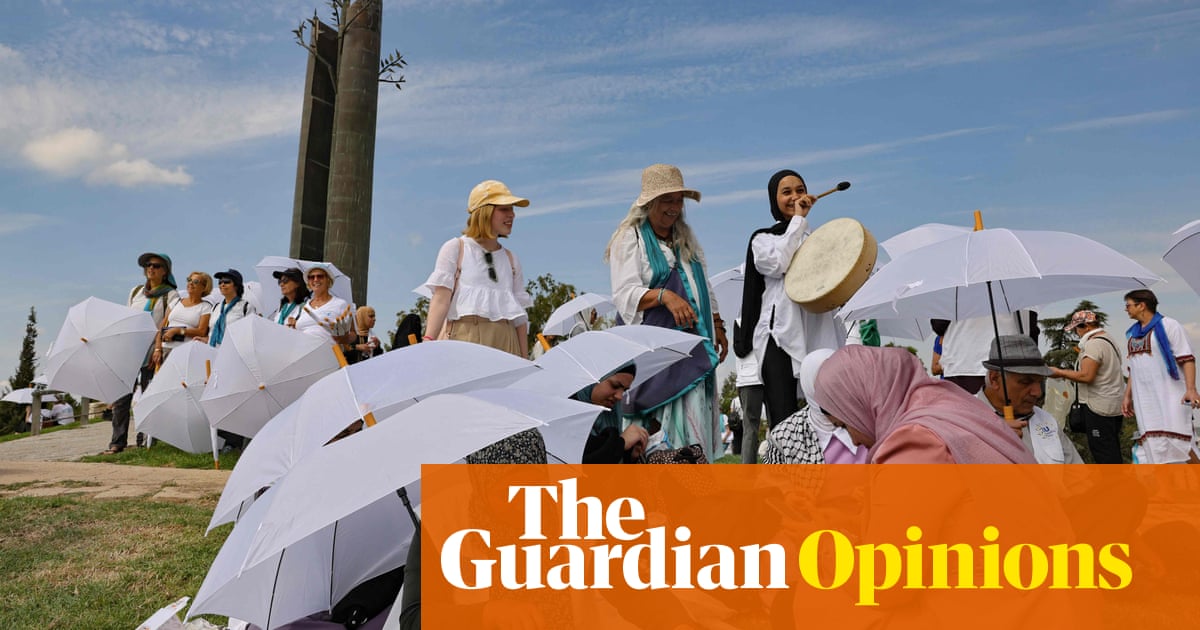
e’re about to enter our fourth week of lockdown in Italy, our sixth of home-schooling, and we’ve begun to glimpse minor positives. It’s as if we’re all at that stage of musical chairs when the music has stopped. The loud, relentless run-around is over. We’ve passed the point of the nervous scramble to get what we need. And now – even if we’re not where, with whom or with all we want – that is just where we’re at. We know the music isn’t starting up again for a long time. And that subtly changes your attitude towards who’s alongside you. Barely-known neighbours have come to seem like comrades in the trenches.
There’s something profound about what is happening in our small palazzo. Giorgio delivers us a newspaper every day. Silvia gives our son an old tablet (studiously wiped clean with alcohol) so he can do his online classes. Massimo delivers sheet music for our daughter. We, in turn, distribute food and offer free, online English lessons. We’re all looking out for each other. The exchanges are announced by text message, like drug drops (“rice outside door”) and with money hidden here and there. We never get close, and yet we’ve never been closer.
You feel the proximity of family and friends who have been video-calling. Long-lost mates are getting in touch. Thanks to technology, we’ve created new fellowships this week: from our confinement in Parma we’ve been to church in Somerset and played a pub quiz in Ealing.
I don’t want to minimise the horror of what we’re living through. The death toll here in Italy is more than 9,000 and Emilia-Romagna, where I live, accounts for more than 1,200 of those fatalities. We know a few who have died: one friend has lost both parents and we currently have two others in hospital – so I’m not downplaying the grief and anxieties.
But the frenetic pace of life has subsided. We’re no longer haring around, taking kids all over the city for friends and hobbies. There are no social engagements. It feels as if we’re in a cross between hibernation and meditation, hunkering down together to discern what really matters in life. I am, on the whole, unconcerned about our children’s education because this is a unique chance for them to step off a fast, ferocious treadmill. They can just play cards, table tennis, or – some hope – read books.
It’s beneficial, too, for us all to realise how much we have taken for granted. Not just grandparents or elementary freedoms, but the idea that our every demand will, in oil-slick capitalism, be instantly met by supply. A few weeks ago we would have been indignant if a supermarket didn’t have a product we wanted. We had almost persuaded ourselves it was a human right to be able to buy guacamole or cider at 3am.
Now we’re waking up to the truth that resources are scarce and that, in our finite world, there won’t always be enough to go around. Money can’t buy what’s not there. We’re seeing first-hand the precariousness of supply chains that are complicated and easily disrupted. The notion that we need to dial down our greed, and increase patience and sharing, might finally go mainstream.
I’m not fetishising vulnerability. It’s a frightening thing. But vulnerability brings humility and reflection. And one of the blessings of this dark season is our awareness of the fragility of our arrogant society. It seems, too, that we’ve woken up to those who are most defenceless. Sure, there’s self-interest in our new-found empathy, because in a pandemic you’re only as safe as the most vulnerable. But contagion at least means that the vapid slogan from the last crisis – that “we’re all in it together” – might this time be true.
We can no longer fail to notice those we have previously overlooked. The homeless – for whom the instruction to “stay home” means nothing – are thrown into sharp relief on our deserted streets. We suddenly see that those who are still working in public, risking their own health – the cashiers, couriers and nurses – are those paid a pittance and often with no contractual commitments from their employers. Never has it been so apparent that our society is built on exploitation.
There is, of course, a chance that the radical right will exploit this moment to reinforce borders and scapegoat outsiders. But there’s also the hope that, given the cold facts of Covid-19, the world’s postmodern nationalists (“I can lie louder than you”) will be revealed as the blow-hards and chancers they are.
Crisis-capitalism is coming into sharp focus. In recent days, some companies have irreparably damaged their reputationsthrough breathtaking meanness. Others have shown themselves to be either genuinely compassionate or brilliant at PR (or both).
I’m clutching at straws, I know. But it does feel as if the world’s reset button has been pushed, as if we’re defragging society’s hard drive. Once we boot up again, we might find ourselves in a better place.
Tobias Jones lives in Parma. He is the author of Ultra: The Underworld of Italian Football.












